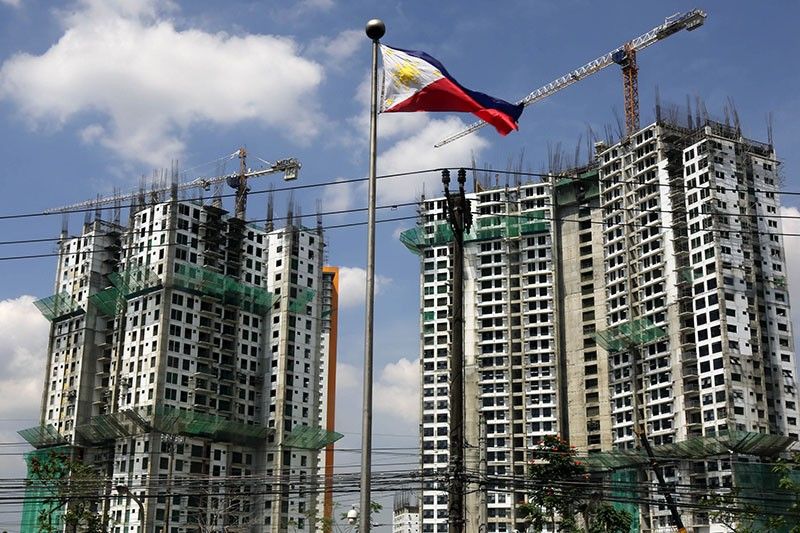Europe’s Global Gateway: A chance for Philippines to advance its economic recovery

Last week, the Stratbase ADR Institute partnered with the European Union Delegation to the Philippines to dedicate two sessions of its Pilipinas Conference to bring together experts from Europe and the Philippines to discuss the importance of EU trade relations and the circular economy to the country’s economic recovery.
To cherry-pick a few key quotes from the two sessions, Dr. Ana Isabel Sanchez Ruiz, deputy head and head of the political, press and information sector of the EU delegation, said, “We wish for the Philippines to get more investors to enter the Philippine market to create more quality jobs and to contribute to the country’s economic recovery.”
“Foreign investors and entrepreneurs, many of whom are literally with us today, are eager to see substantial growth as in economic reform, further opening to foreign capital, and improvement in the business climate,” she added.
Meanwhile, EU delegation First Counsellor Maurizio Cellini said that “COVID has demonstrated our resilience, our adaptability, and our creativity. Yet it has also shown our interdependence as nations and individuals and made us realize that we only have one planet to share and to protect.”
Cellini also acknowledged that “climate change is the biggest challenge of our times and the EU, building on its massive COVID recovery effort, is taking this opportunity to build a more sustainable economic model.”
While these quotes barely capture the entirety of what was discussed over the two-day event, they nevertheless highlight an important point: climate change and the pandemic have tremendous human and economic consequences that require an enabling environment and collaboration among like-minded partners to overcome.
Perhaps a better way to understand and appreciate this vital point is to consider the EU’s Global Gateway program, which it officially launched just a few days ago.
The Global Gateway program is an EU’s €300 billion global infrastructure plan to boost smart, clean and secure links in digital, energy and transport and strengthen health, education and research systems worldwide.
During its launch, European Commission President Ursula von der Leyen said: “COVID-19 has shown how interconnected the world we live in is. As part of our global recovery, we want to redesign how we connect the world to build forward better. The European model is about investing in both hard and soft infrastructure, in sustainable investments in digital, climate and energy, transport, health, education, and research, as well as in an enabling environment guaranteeing a level playing field. We will support smart investments in quality infrastructure, respecting the highest social and environmental standards, in line with the EU's democratic values and international norms and standards. The Global Gateway Strategy is a template for how Europe can build more resilient connections with the world.”
This strategy is being touted as the EU’s response to the global infrastructure investment deficit that is expected to reach €13 trillion by 2040, according to the G20.
At the same time, many also see it as Europe’s alternative to China’s Belt and Road Initiative (BRI). The BRI is China’s own global infrastructure development strategy which it launched in 2013. However, the BRI has been criticized for pushing countries into unsustainable levels of indebtedness over the years.
The Philippines is no stranger to the BRI, with Chinese-backed projects like the Chico River Pump Irrigation Project, New Centennial Water Source-Kaliwa Dam Project, DITO Telecommunity, and the Safe Philippines CCTV project being criticized for lacking transparency, having opaque bidding and selection processes, and onerous contract provisions.
In contrast to the much-criticized BRI, the Global Gateway is the EU’s “positive offer” to finance projects that can be delivered with high standards, good governance and transparency and “under fair and favorable terms to limit the risk of debt distress.”
The Global Gateway approach also means partner countries that want to receive EU funding must adhere to the following key principles:
- Democratic values and high standards. Partner countries are expected to comply with the rule of law, uphold high human, social, and workers’ rights standards, and respect norms from international rules and standards to intellectual property.
- Good Governance and Transparency. Projects financed through this fund must ensure transparency, accountability, and financial sustainability. They will need open access to public procurement, a level playing field for potential investors, and a clear set of agreed deliverables.
- Equal partnerships. This means the EU will develop partnerships with countries at eye-level and consider the host countries’ capacity to manage and maintain the infrastructure in a sustainable way after it has been completed.
- Green and Clean. Since the Global Gateway aims to speed up sustainable development and recovery, create inclusive growth and jobs, and transition to a cleaner and more circular global economy, the program will invest in developing clean, climate-resilient infrastructures aligned with pathways towards net-zero emissions.
- Security-focused. This means the EU project will invest in infrastructure that plugs vulnerabilities, provide trusted connectivity, and build capacity in the face of both physical and digital challenges.
- Catalyzing private sector investment. The strategy will leverage Europe’s private sector’s innovation, knowledge, and investment capacity to give it a unique competitive edge.
What all this means for the Philippines is that it has the opportunity to access favorable financing to bring much-needed upgrades to its digital, energy, transport, health, and education infrastructure. This is an opportunity the country should not pass up since developing infrastructure in these critical areas is crucial to the country’s Covid era sustainable economic recovery.
And while this may open up opportunities for greater EU-Philippine collaboration, the real challenge lies with our government’s ability to attract these investments. Much will depend on how well the government can put policies and programs in place that show it can uphold democratic values, ensure good governance, and support sustainable business and trade practices.
Paco Pangalangan is the executive director of think tank Stratbase ADR Institute.
- Latest
























